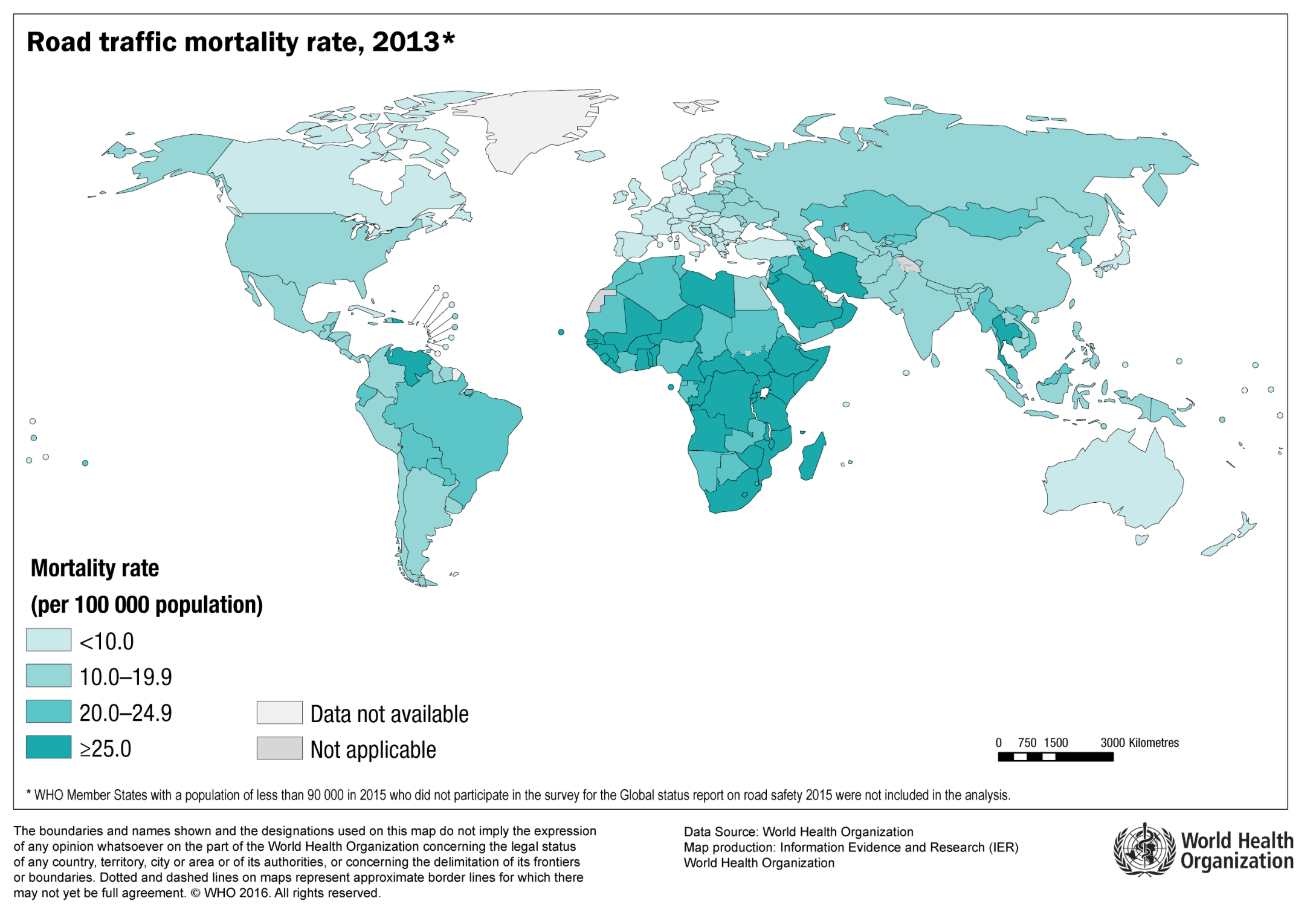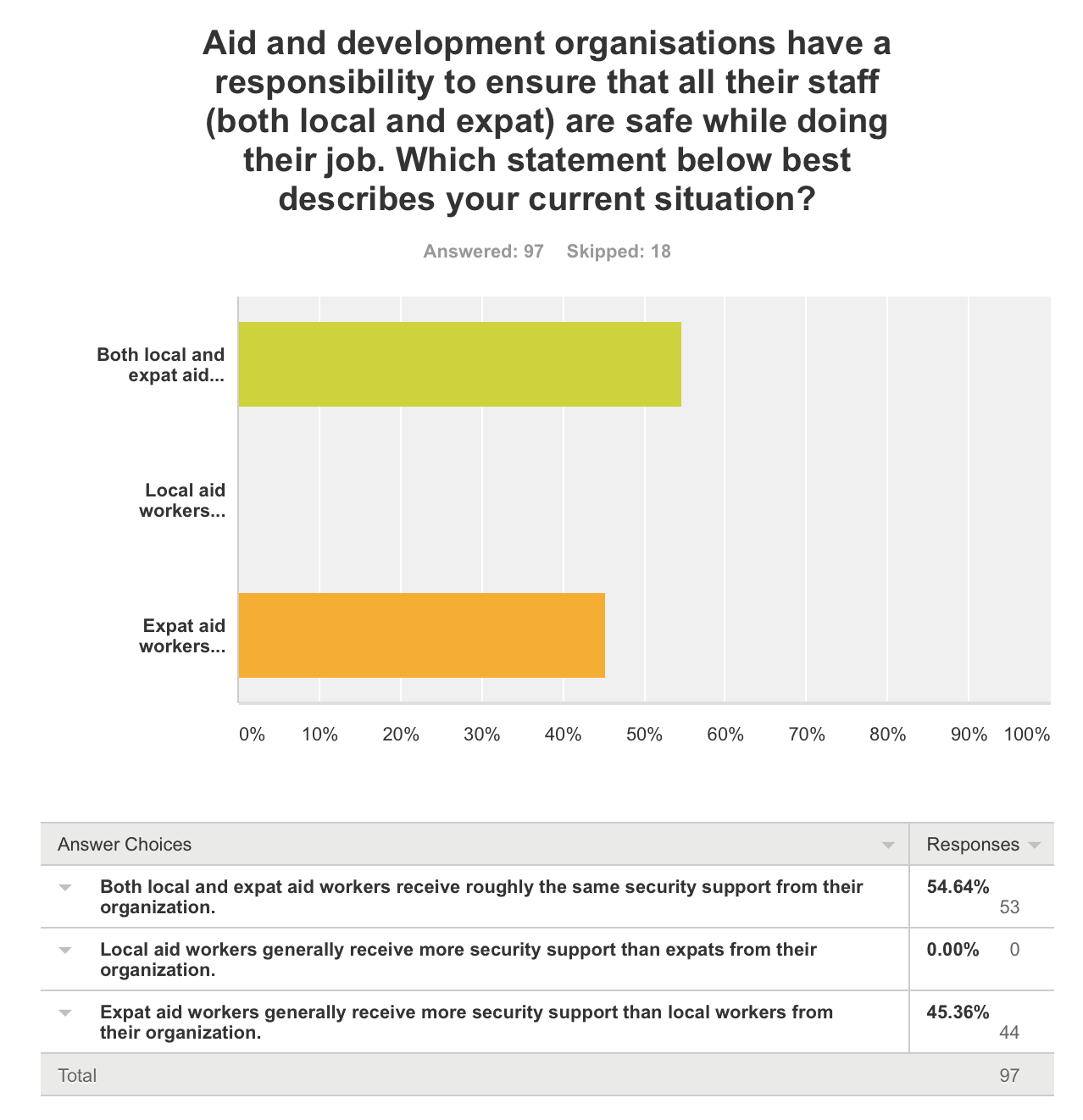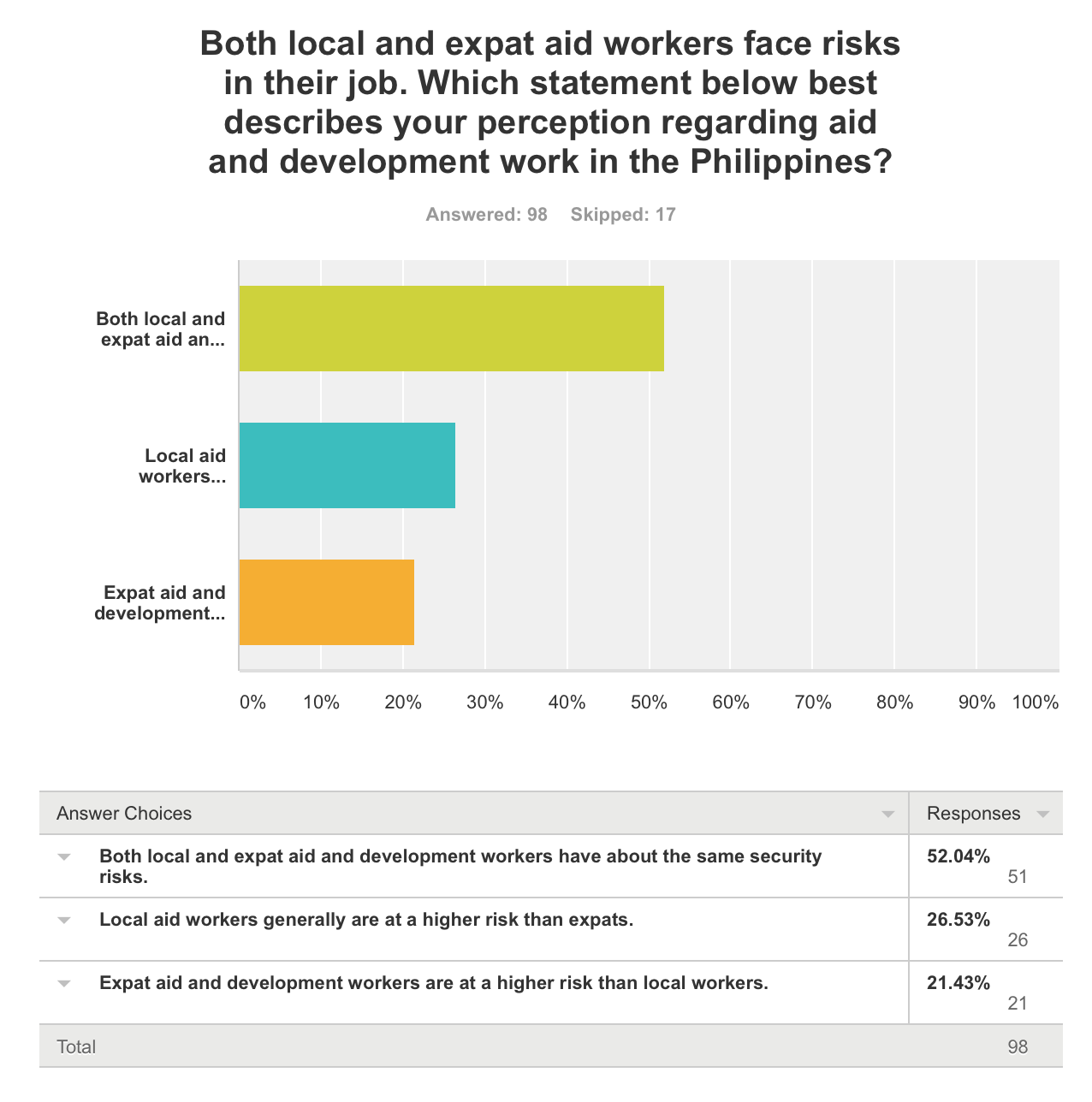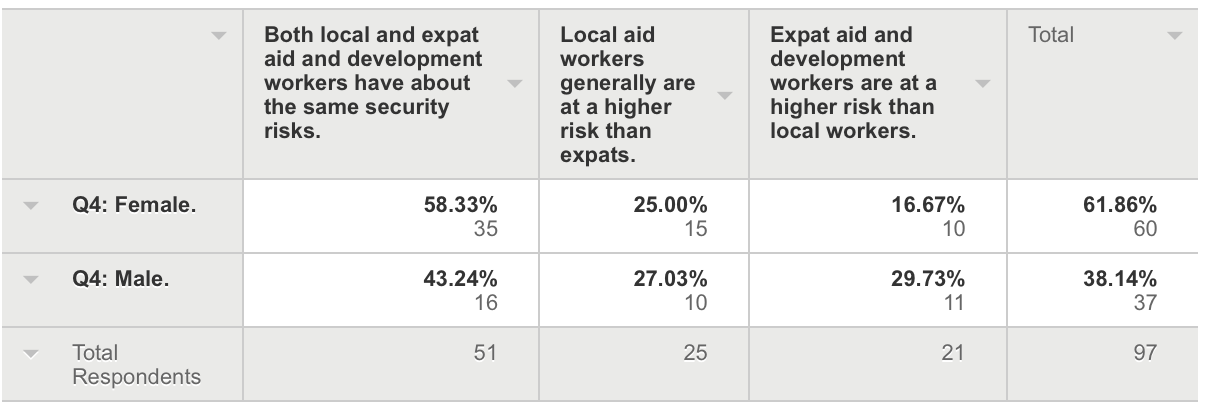Security for both local and expat aid workers in the Philippines
Perceptions of risk security for both local and expat aid workers in the Philippines
Some background
Security has always been an issue for aid workers, and beginning in the mid-1990’s programs like Hostile Environment Awareness Training (HEAT), Hostile Environments & Emergency First Aid Training (HEFAT) and Security Risk Management Training (SRMT) have increasingly been in-house operations in many larger INGO’s. Many organizations outsource this training to some well established non-profits, and there are independent training opportunities geared to the aid sector for smaller  organizations as well. Outside of the sector, media organizations and transnational corporations have parallel programs, see here and here for examples.
organizations as well. Outside of the sector, media organizations and transnational corporations have parallel programs, see here and here for examples.
Despite training and a long term array of well intended actions there is still danger for both local and international aid workers that can become too much to bear. The most extreme example in sector history arguably being MSF pulling put of Somalia in 2013 after 22+ years of presence due to killings and kidnappings.
Historically the security situation in the Philippines is not quite as extreme as some other parts of the world where organizations have had to temporarily pull out aid workers, though changes in leadership and a recent influx of both drug related and Daesh-sympathetic organizations bears close watch.
The Aid Worker Security Database (AWSD) is a project of Humanitarian Outcomes, and has been collecting and vetting comprehensive data related to aid worker security for nearly 20 years. Data specific to the Philippines for the period from 2005 through 2015 indicate that locals are more likely to be targets by ratio of 5:1, just a bit lower than the aggregate data globally from 1997 – present where the ratio is 8:1. Those numbers alone distort the bigger, more accurate picture, though, since there are many more local aid workers in most locations than there are expats.
A broader comparison?
Another factor to consider when discussing local versus expat worker risk is traffic accidents, one of the leading causes of death and injury world wide, and especially so in low- and middle- income countries. Local aid workers frequently need to use local transport – not a NGO supplied SUV with driver- or have to drive sometimes long commutes to work, increasing their risk for death or injury.
There are other factors as well to take into account -diseases like malaria, for example- and perhaps any definitive study should compare overall mortality rates comparing these two populations. Given the fluidity of the definition of ‘expat’ and ‘local’ aid workers -not as binary as most discussions make it sound- I am not holding my breath for those data to appear anytime soon.
But if we are indeed serious about having an inclusive discussion and comparison around the topic of risks to aid and development workers we can’t only focus on physical well being. Mental health cannot be ignored, and rates of burn-out, work-related stress, sexual harassment, and a range of related issues -not the least of which is suicide – need be considered. The rates of mental health related issues among aid workers is a a topic often covered, but most of what I found focuses more on mental health issues related to expats. See here and here for examples.
Our data from the Philippines
That organizations which employ aid and development workers have an obligation to minimize risk through proper staff training, safe facilities, property articulated and acted upon HR policies, human and material security infrastructures is a given. Safety and security must always be a top priority. In our survey we asked two questions related to security, results below.
Equivalent security?
Local aid worker views regarding organizational efforts to insure worker safety were explored in this question, “Aid and development organisations have a responsibility to ensure that all their staff (both local and expat) are safe while doing their job. Which statement below best describes your current situation?”
below best describes your current situation?”
The data are quite clear, with a slim majority -55%- indicating that, “Both local and expat aid and development workers have about the same security risks.” What jumped out at me when I looked at the results was that none -as in 0%- thought that local aid workers got “more security support than expats” and 45% believed that “expat aid workers generally receive more support.” These data must be seen in the context of our next question.

At risk
We next asked about perceptions regarding risks while on the job, “Which statement below best describes your perception regarding aid and development work in the Philippines?” and the data here were telling. While a slim majority -52%- believed that expats and locals bore about the same risk, the remainder of the respondents were split, 27% thinking locals were more at risk and 21% believing the opposite, that expats were at higher risk. Most survey researchers tend to be critical of their own questions, and this is painfully true of this question. It would be very illuminating too hear why these Filipinos responded as they did and wish I could retroactively add a comment box for this question.
Gender a factor?
I was curious as to what degree the gender identity of the respondent played in to their response. As you can see, the data do show that nearly twice as many -30% compared to 17%- males who thought that expat aid  workers were at higher risk.
workers were at higher risk.
Why?
The ‘what’ and the ‘why’
For me the data on these two survey prompts raise far more questions than they answer, and again I am frustrated by the inherent nature -and purpose- of exploratory research, namely to raise questions. In this case one main question is, ‘why a good percentage of local aid workers feel that the expats are at higher risk?’ I can offer conjecture, but I defer to the future when more -and more comprehensive- data are available. In the meantime the data do indicate that (1) many Filipinos think that expats receive more security than local workers but that (2) well over one in four -27%- felt that local aid workers were at higher risk.
Questions or comments? Please contact me.
 Follow
Follow